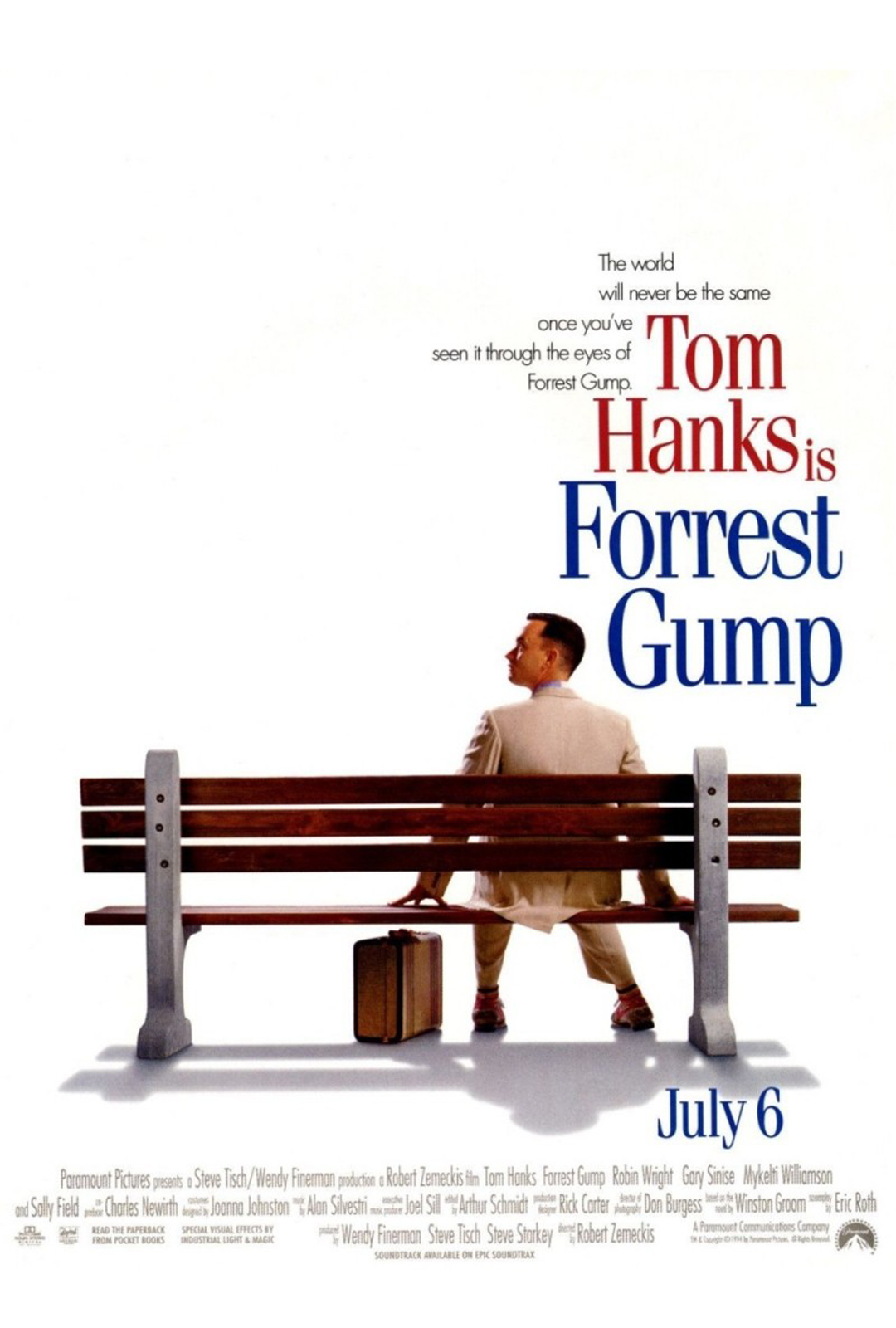One of the signature lines from "Forrest Gump" is "Life is like a box of chocolates; you never know what you're gonna get." Ironically, during my viewing of the film, I knew exactly what I was getting: a stale, hollow shell of a movie with nothing sweet in the middle.
"Forrest Gump" is the worst type of movie. Is it entertaining? Yes. Does Tom Hanks give a great performance? Yes. But both are at a terrible price. The most disturbing aspect of this film is that it propagates a false narrative of American history through an inaccurate lens of nostalgia. I would go so far as to argue that the movie blatantly disrespects important and harrowing aspects of our nation's history, particularly the Vietnam War, racial counterculture, desegregation, and the protest music of the 1960's. "Forrest Gump" is based on a sole premise: that baby boomers will lean over to their friends and/or relatives and say, "Oh gosh, do you remember that?"
The problem is that the aforementioned moviegoer does not really "remember that." The movie presents an America that did not really exist----ever. Let's visit some examples: the movie's sound track, which underscores the entire film, is filled with the great artists that have stood the test of time: Elvis, The Doors, Buffalo Springfield, Jefferson Airplane, Lynyrd Skynyrd, and so on. It seems as though EVERYONE in the sixties was against the establishment, the Vietnam war, and was listening to the above protest music.
Yet, the billboard charts tell a somewhat different story. In 1968, at the height of the Vietnam war protest movement, the number one song was "The Ballad of the Green Berets," a pro-military, ultra patriotic anthem if I ever heard one. "Forrest Gump" distorts the fact that much of rock and roll, particularly the art which dealt with political and social change, was a counterculture in the minority. What's truly amazing about this minority is that its music, beliefs, and rhetoric become the defining aspects of the sixties, though only in retrospect. To honor the bravery and accomplishments of those young people, their story has to be told in the proper context, and in the movie, it is not.
Then we come to the problem of the character named Jenny, who fittingly serves as Forrest's muse for the entire film. Jenny is a walking cliche. She could be a character in a toddler's pop-out book explaining the most general events of American history. Conveniently, Jenny seems to be in tune with every culture movement as they happen. She's a teenage runaway who quickly becomes a hippie in the sixties. She's a coked out, night club jezebel in the seventies. And, most offensively, she contracts AIDS in the eighties. Again, her character represents the gross oversimplification that pervades this film.
Finally, and most maliciously, "Forrest Gump" reduces some of the most important moments in our history to pure buffoonery. My favorite example is the scene depicting the desegregation of schools in Arkansas. Watching African Americans enter those schools after hundreds of years of oppression is a truly serious moment. But Forrest Gump ruins that moment by popping up inexplicably and adding some unnecessary comic relief about a woman dropping her book. Throughout the film, we find out that Forrest is not only present at other historical events, but he is also the catalyst of them. We have Forrest to thank for Elvis Presley, John Lennon's "Imagine," the smiley face, the "shit happens" bumper sticker and the success of Apple computers. Once again, the purpose of these little moments is for baby boomers to turn to each other and say in a dismissive yet giggling manner, "I remember that! He wasn't there!"
The scene that sums up "Forrest Gump" for me is when he is forced on stage at the famous Vietnam protest rally on the national mall in Washington DC. In an intended comedic moment, Forrest is pulled on the main stage and asked what he thought of Vietnam. A military officer then disconnects the microphone cords, rendering his speech completely inaudible. As the microphones are reconnected, we can only hear the words "And that's all I have to say about that." Exactly. "Forrest Gump," both the character and film, has only this to communicate to its audience: nothing.

No comments:
Post a Comment